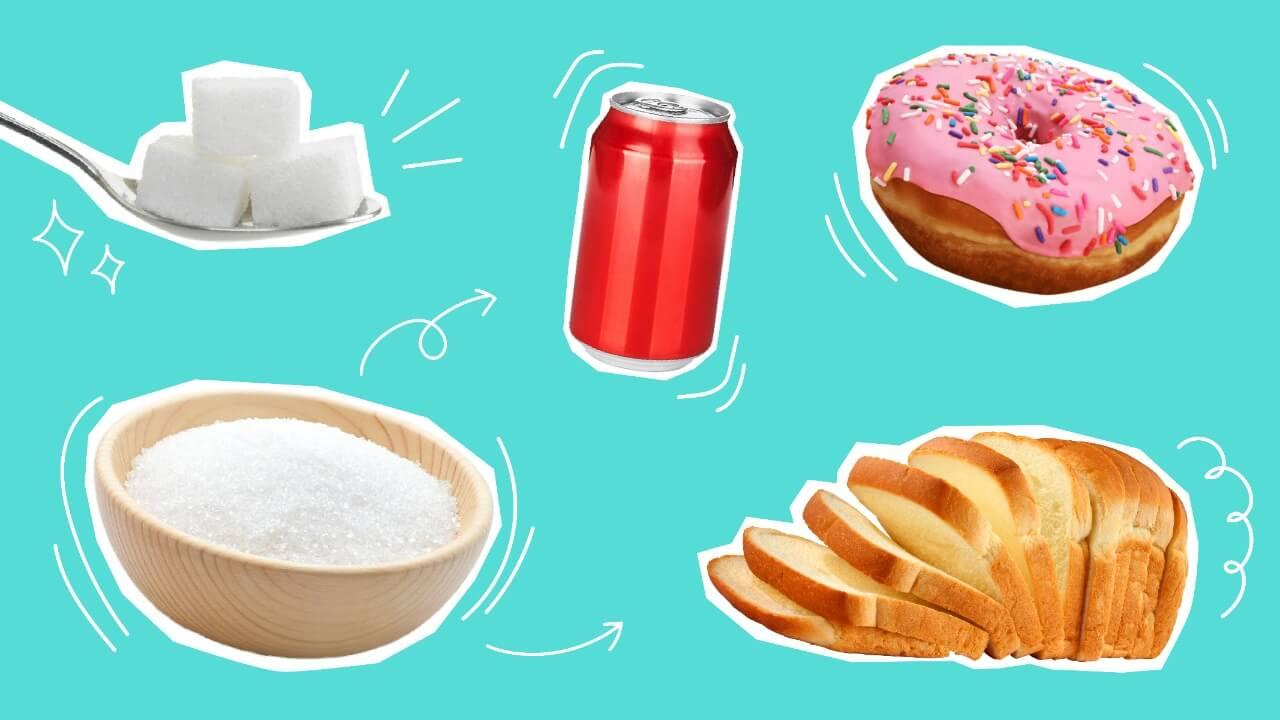What is a sugar addiction and how to stop sugar cravings?
How to curb sugar cravings
The most trustworthy source of food and
fitness journalism in the country.
How much added sugar is it okay to consume per day?
The World Health Organization recommends a maximum of 5-10 teaspoon (25-50g on a 2000 Kcal diet) of free or added sugars. These sugars can come from any form or type of added ‘sugar’ in your processed foods or from sugars you may add in your food while cooking. So, if you had a can of coke today, you already consumed all the sugar you should be consuming that day!
What makes sugar so addictive? What makes the body crave it?
Our brain runs on glucose!
Evolutionarily speaking, our brain is trained to forage for and store sugar so that we never have depleted levels for proper functioning. This very trait for survival has become somewhat detrimental to our health due to the ready access to sugar-laden foods around us.
From a biochemistry standpoint, sugar intake releases dopamine and other neurotransmitters that have shown to activate our opiate receptors in our brain and affect our “reward” behavior. In simpler words, every time we consume sugar (especially in excessive amounts), we are signaling our brain to release neurotransmitters that make us feel good/happy while building tolerance towards sugar – similar to other drugs.
I wouldn’t pitch sugar and cocaine together like several attention-hungry headlines do. However, multiple studies, especially in rats, have shown that we can develop food addiction (if not drug addiction) due to frequent and excessive intake of sugar through our diet. Moreover, misinformation about several fad diets and the lack of knowledge of nutrition has led to people trying several harmful “instant-result” tricks to lose body weight. Such unregulated interventions may end up resulting in negative impact on the body, one of them being increased sugar cravings!
How to stop sugar cravings? Are there other foods which can curb sugar cravings?
If you have very frequent sugar cravings spread throughout the month, your body may be trying to signal something to you. From experiencing unmanageable stress or under nourishing yourself, there can be several triggers for sugar cravings. Thankfully, there are some things you can do address these random sugar cravings:
- Have whole fruits: not juice, but the entire fruit with its fiber intact!
- Consume 2-3 dates: Dried dates have natural sugar present in them (like fresh fruits), but they also have enough fiber to make sure you don’t get a terrible sugar spike.
- Did you skip your meal? Consume a meal including protein, fats, and carbohydrate. Not too much or too less of it, but in the correct proportion!
Is it good to eliminate sugar completely from your diet?
Although you don’t have to be that extreme in your approach, it is definitely good to work towards eliminating free/added sugars from our diet. Also, we must understand the difference between consuming isolated & concentrated simple sugars versus consuming complex carbohydrates. Many instant approaches towards weight loss and “healthy” fad diets demonize carbohydrates in general. But they are an essential requirement of our macros and fulfill many critical bodily functions.
How effective is a no sugar diet?
A no added/free sugar diet may have several benefits associated with health. For starters, you are liberating your mind with the sugar induced dopamine dependency. No sugar –> no dopamine release due to sugar –> no “reward” feedback to the brain –> lesser changes of food related sugar “addiction.” A no added sugar diet also helps you have lesser spikes in your blood glucose levels, thus regulating insulin levels better than if you were to overdose on sugar. Moreover, it’s much easier to manage your weight and health on a no sugar diet, thus reducing the risk of many lifestyle related diseases.
However, for most of the people it is extremely difficult to achieve a no added sugar diet and maintain this kind of diet sustainably. This also deprives us of several foods that are culturally a part of our food system. Several people find it difficult, but still try to refrain from sweets altogether, only to binge or overdo them later. A better approach could be to have a healthy relationship with sugar rather than demonizing it completely. A low added sugar diet has very similar benefits to a no added sugar diet, and is easier to maintain. This way you are depriving yourself from secretly craving the ‘forbidden fruit. The only key here is to understand how many hidden sugars you may be eating, in case your diet is one that’s high on ultra-processed or junk foods.
